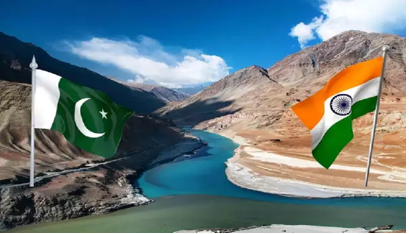آئی این پی ویلتھ پی کے
Ayesha Saba
India’s recent announcement to unilaterally suspend the Indus Waters Treaty with Pakistan has sparked widespread concerns among regional security analysts. They described the move as a breach of international norms threatening not only bilateral relations but also the broader regional stability in South Asia.

Speaking to WealthPK, Dr Hassan Akhtar, a senior policy analyst at the Institute of Strategic Studies, said the unilateral suspension of the treaty by India sets a dangerous precedent. “The Indus Waters Treaty is one of the few functional and time-tested agreements between Pakistan and India that has survived multiple wars and crises. Its suspension undermines the spirit of diplomacy and signals a shift towards unilateralism, which could destabilise the entire region,” he noted.
Signed in 1960 with the World Bank as a guarantor, the treaty allocated the three eastern rivers to India and the three western rivers to Pakistan. Any attempt to suspend it without mutual consent challenges the legal framework of transboundary water sharing.
Akhtar said that India’s move lacks legitimacy, emphasising that any such withdrawal must involve arbitration or mutual consultation. “India’s declaration not only violates the treaty’s dispute resolution clause but also risks its international isolation.”
Brig retired Fahad Sheikh, a strategic affairs specialist, believes that India’s decision is driven by politics, possibly to gain support at home before elections or to show power in the region. “However, such short-term political gains come at the cost of long-term peace. Water is a sensitive issue, and any miscalculation could lead to unintended consequences,” he warned.
He urged both nations to return to the negotiating table and uphold treaty obligations. “Water should be a source of cooperation, not conflict. The international community must not remain silent when the risk of regional destabilisation looms so large.”
Sheikh emphasised that the treaty had functioned as a buffer against full-scale water conflict in one of the world’s most volatile regions. “Tampering with the treaty is equivalent to tampering with regional peace. Water is not just a resource; it’s a lifeline for agriculture, energy, and human survival in both the countries,” he noted.
He stressed that diplomacy must be urgently revived. “There are calls for Pakistan to take the matter to international forums, including the UN Security Council or the International Court of Justice, and for India to reconsider the long-term strategic costs of undermining treaty-based cooperation.”
Credit: INP-WealthPk








